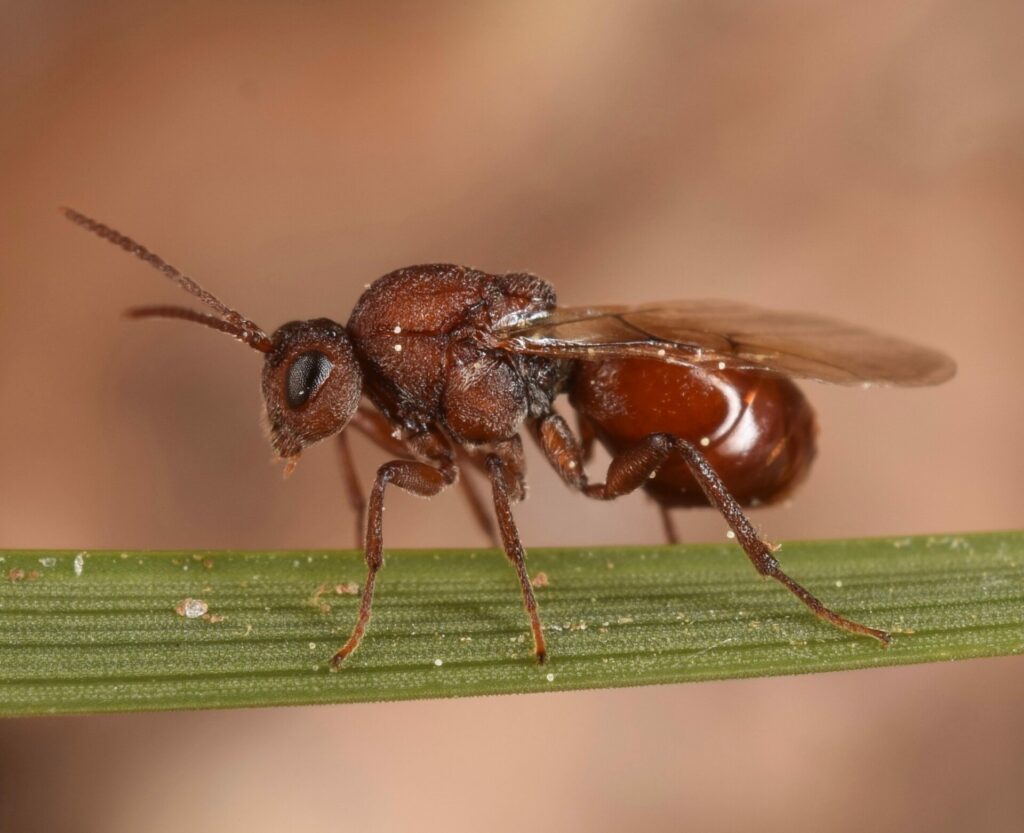Frequent droughts have plagued Belgium throughout the year, creating a veritable Mediterranean climate for Belgians this summer, while also creating the perfect playground for certain wasps that travel from southern Europe to Belgium, according to Belgian broadcaster RTBF.
At the end of July, Europe’s largest wasp, the garden gall wasp, began to appear across Belgium. While perfectly harmless, the scary-looking wasp is just one of a number of new species that have flocked to Belgium over the past few years.
“Each year, we discover several insects here that have never been seen before,” explains Jean-Sébastien Rousseau-Piot from the Walloon nature protection association Natagora. “More and more of them are southern species.”
Some have rushed to blame this new and surprising trend on global warming, which has indeed forced other animal species out of certain habitats and into others. But experts from Natagora believe the story is not so simple.
“All the species come from the south, that’s a fact. But be careful, these are only a few insects at a time, we are not talking about a stable population. It remains globally anecdotal,” he explained.
The experts from Natagora are still unsure if these visits by tropical wasps are one-off occurrences or part of an attempt to find new habitats to create nests and to reside in the long-term.
Even if the recent changes in climate are real, Rousseau-Piot insists, it is still impossible to make a confident link. “We do not have enough hindsight, nor an appropriate protocol to draw definitive conclusions. Of course, we know that climate change will cause modification, but we do not yet know what exactly,” he said.
It is certainly possible that high temperatures in southern Europe may be forcing wasps further north, where it is relatively cooler but increasingly dry and Mediterranean in climate. As of yet, there is no evidence of this, but it is a trend which is not exclusive to wasps in the country.
New insects appear more frequently in Belgium
Belgians are reporting ever increasing mosquito outbreaks during the warm weather, as well as the presence of rare tropical species of mosquito, such as the Asian forest mosquito, aedes japonicus, and the more dangerous tiger mosquito, which risks infecting Belgians with tropical viruses such as dengue, zika, or the chikungunya virus.
It is possible that these mosquitoes are simply brought into the country via airports. One Belgian was recently infected with malaria by a mosquito in Belgium, which is believed to have entered the country through Brussels’ Zaventem airport.
Related News
- Largest wasp in Europe found in Belgium for the first time
- Wasp season expected to be particularly bad this summer
Other intimidating insects have also started to appear in Belgium. Asian hornets settle in Belgium during the summer months and can be quite aggressive towards humans, however the Flemish Bee Institute has called for calm and says that they are no more deadly than other native wasps.
French researchers have claimed that increasing climate change will lead to more frequent appearances of the hornets on the European continent, as reports of the insect continue to grow.
For the Mediterranean wasps, Rousseau-Piot says it is still too early to tell what the future may hold.
“Changes are certainly observed, but we must not fall into the trap of blaming everything on climate change. Other external pressures in highly populated countries like our explain the modification of fauna and flora. Concreting and intensive agriculture remain the main factors of these changes,” he concluded.

